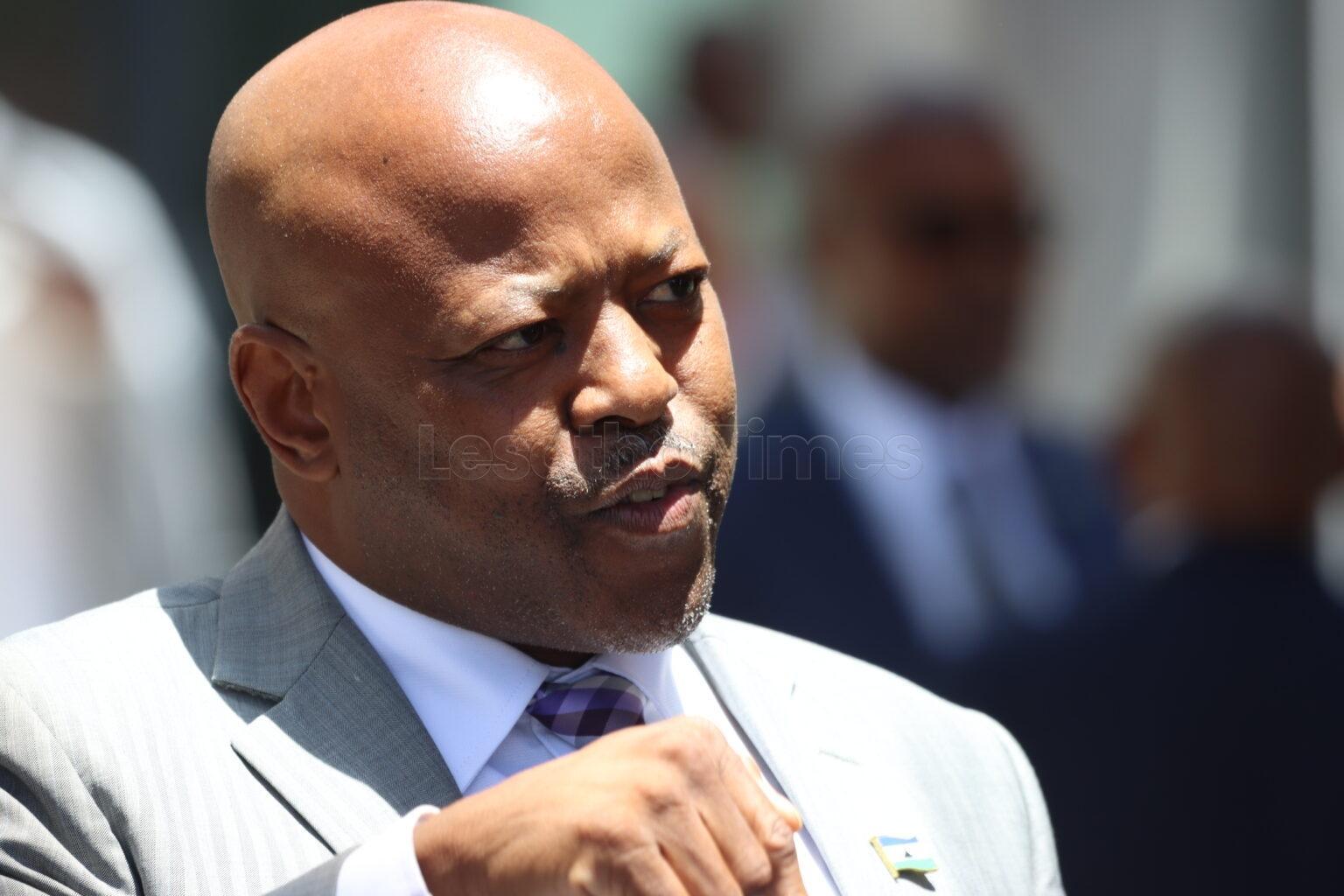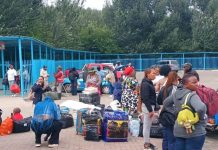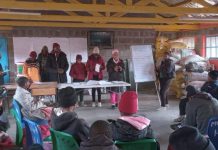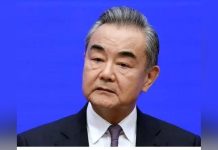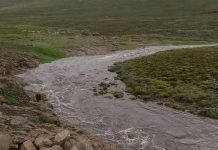Africa-Press – Lesotho. NATURAL Resources Minister, Mohlomi Moleko, has vowed to “fight tooth and nail” against politicians he says are standing in the way of his plans for sweeping reforms aimed at reviving Lesotho’s multibillion-maloti energy and mining sectors.
Mr Moleko said he is commanding a portfolio estimated at M300 billion with a clear mission — to restore and reform critical state institutions such as Ha Belo Powerstation, Ramarothole Solar Plant, and the Lesotho Electricity Company (LEC), which he calls the “engine room” of national development.
In an exclusive interview with the Lesotho Times this week, Mr Moleko vowed to “fight tooth and nail” against politicians attempting to derail his plans to transform the country’s energy, water and mining sectors into engines of economic growth.
Mr Moleko, whose ministry is responsible for water and mining affairs, reassumed the role of Acting Energy Minister in November 2024, a position he had vacated in 2023 when Energy was established as an independent ministry.
He spoke about both progress and frustration, citing internal resistance from certain lawmakers “driven by politics rather than development”.
Metsi ke Bophelo controversy
Revisiting the turbulence surrounding the “Metsi ke Bophelo (Water is Life)” Conference held in Maseru from 12–13 October 2023, Mr Moleko said it was the first major sign of resistance he faced.
The high-profile conference, coordinated by Metsi ke Bophelo Advocacy Incorporated through its coordinator, South African businessman Mashudu Ramano, sparked heated debate in Parliament, with some MPs opposing it on the grounds that it was a “gateway for selling off Lesotho”.
“Some Members of Parliament took the matter to the highest tier of law-making, opposing the event on the assumption that it would pave the way for Lesotho’s resources to be sold,” he explained.
However, Mr Moleko insisted that the conference’s objective was to usher Lesotho into a new era of innovation — positioning it as the first country in the world to become fully digitalised through water-based technology.
“Lesotho’s water resources give it a clear advantage over other countries in the region. We occupy only 3% of the SADC water basin, yet we produce 40% of the region’s water — more than any other nation. This makes us the most impactful country with the capacity to serve the entire region,” he said.
He explained that the partnership with Mr Ramano was meant to “unravel more advantages” and open Lesotho’s eyes to new opportunities.
“Through that initiative, we coined the vision for Lesotho to become the first Digital Hydro Nation in the World — something unprecedented. Not even Google had that term in its search engines,” he said.
To make the conference a success, the ministry invited international partners and roped in the National University of Lesotho (NUL) as a key academic partner.
“I was shocked to see people opposing such a vision going as far as using parliament to block the conference. As I sat watching the deliberations, I realised there was something deeply wrong with this country.
“I saw people who hated development dragging us, the optimists, down with them. I remember clearly the Attorney General sitting next to me that day, also opposing the motion. I thought to myself, ‘these people are idiots!’ How do you use your power to prevent a ministry from hosting a conference?”
Despite the attempts to sabotage it, the conference went ahead successfully and, according to Mr Moleko, yielded tangible benefits, including a US$25 million (approximately M450 million) investment from the Finnish government.
“Lesotho is now on course to becoming the first Digital Hydro Nation in the world because of the support we gained after that conference.”
He explained that the Finnish government, impressed by Lesotho’s presentation, offered the funding to develop digital water systems that will allow for real-time data collection on all water sources.
“Wherever a borehole is dug or a mine conducts water testing, all that data — including borehole depth and capacity — will be entered into the system in real time.”
Additionally, the National University of Lesotho will be strengthened to become a Regional Institution of Water Excellence, serving as a hub for expertise on construction, irrigation, tourism, and other water-related activities across southern Africa.
Major water projects underway
The ministry is spearheading several massive infrastructure projects aimed at improving water accessibility and energy generation. Among them is the Oxbow Project, valued at M800 million, which includes a dam, a hydropower station, and floating solar panels capable of generating 400 megawatts of renewable energy.
“The Polihali Phase II construction is also in progress, featuring a 175-metre high rockfill dam, a concrete-lined wall, and 38 tunnels linking Phases I and II. The project, valued at M100 billion, includes infrastructure worth M55 billion and hydropower investments of M37 billion. Two of the four bridges under construction are nearing completion.
“The existing Polihali Lodge will be converted into permanent staff housing after completion,” Mr Moleko said.
He said the Lesotho–Botswana Water Transfer Scheme will see the construction of a 700-kilometre conveyor system delivering water to Botswana while supplying towns such as Bloemfontein and Mafikeng along the route.
“Meanwhile, the Lesotho Lowlands Water Development Project will provide clean water to over one million Basotho upon completion. The initiative has already begun in Leribe and Butha-Buthe, with construction for Mohale’s Hoek and Mafeteng expected to resume next year.”
Energy sector reforms
Turning to energy, Mr Moleko said his ministry is undertaking extensive reforms to revitalise the sector, with LEC at the heart of the transformation.
“One of the reforms we are implementing targets institutions like LEC using a holistic approach. We began by removing the board and management, then commissioned a forensic audit to trace the root causes of LEC’s problems,” he said.
While awaiting the audit findings, the ministry has rolled out a long-term performance improvement plan and is reviewing electricity tariffs to make them more cost-effective.
“If tariffs remain high, the government will intervene through subsidies,” he added.
He stressed that LEC’s revival is key to making Lesotho a leading energy supplier in the region.
“Out of 11 clean-energy areas identified by South Africa, Lesotho holds a natural advantage in nine of them. To develop those areas, South Africa would need to build new power lines — a process that could take up to 20 years. This is where LEC must step in.”
Lesotho is already erecting infrastructure to transport electricity generated from renewable energy plants within the country. The second phase of the Ramarothole in Mafeteng will soon transmit electricity to nearby South African towns through interconnected powerlines.
“In two years, we will be self-sufficient in energy. We are erecting a major transmission line from Ramarothole to supply villages from Mazenod to Qacha’s Nek. These lines will also connect to South Africa — from Maseru to Bloemfontein, Butha-Buthe to Clarens, and Mokhotlong to the N3 Substation at Venus. This will allow us to sell electricity to Eskom and directly to mines through ‘wheeling’ arrangements managed by LEC.”
Wheeling entails the delivery of power from a generator to consumers through established transmission networks.
He further revealed that Ramarothole had been restored after a full technical review involving a company from Tunisia, following earlier findings of erosion caused by the absence of an Environmental Impact Assessment (EIA).
“The Ramarothole case was a grave example of poor governance. When I first took office, I asked for the EIA report, only to discover that people had merely ticked boxes without any real understanding of what the process entailed,” he said.
Funding the energy transformation
Through the Lesotho Electricity and Water Authority (LEWA), the government has generated M40 million in revenue to support the Lesotho Renewable Energy Project, which promotes household electrification.
Mr Moleko also revealed that during the recent UN General Assembly in New York, Lesotho secured M900 million from the World Bank, Rockefeller Foundation, and Michael Bloomberg Philanthropies. The funds earmarked for building capacity for ongoing and upcoming projects.
After analysing delays in LEC projects, Mr Moleko found that the company had only three designers handling project designs nationwide. This, he said, explained the stagnation of electrification efforts for over two years.
To address this, the ministry will issue M100 million tenders to large companies capable of electrifying entire villages or constituencies. Subcontractors will work under the main contractors’ supervision, enabling faster completion while gaining valuable experience.
“This approach will accelerate our progress toward electrifying every household in Lesotho by 2030, fulfilling the United Nations Sustainable Development Goal Number 7 — about universal access to energy,” he said.
Corruption and stalled projects
Mr Moleko also criticised the culture of stalling public projects due to corruption allegations, arguing that it wastes time and costs jobs.
“Why should we stall public projects whenever people allege corruption? Why can’t the Directorate on Corruption and Economic Offences (DCEO) simply intervene and investigate without stopping progress?”
He cited the Belo project as an example of development being derailed over unproven claims.
“What if a project is stopped for two years, only for the investigation to find no wrongdoing? That’s two years of wasted opportunity and lost employment for Basotho,” he lamented.
He also called for better understanding of conflict-of-interest issues involving politically exposed persons.
“If a minister’s family member works with the government, that should not automatically mean foul play. What matters is making proper declarations where necessary.
“Unfortunately, the culture here is that everyone wants to play judge. We must let the courts decide and stop sabotaging national progress.”
For More News And Analysis About Lesotho Follow Africa-Press

